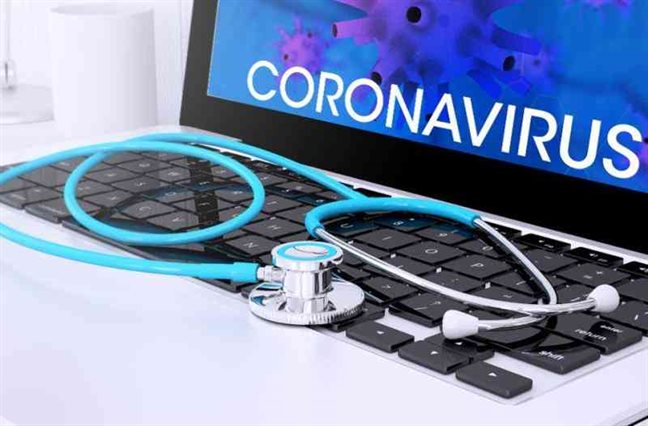Will Coronavirus Lead To More Cyber Attacks? Hackers Love a Crisis
Kathmandu, March 26
Hackers sure love crisis. Because our fear becomes a business opportunity for them. The crisis in hand is the coronavirus outbreak globally. Hackers around the world undoubtedly are prepared to capitalize on the crisis. During the pandemic, they look for an opportunity to launch a different kind of ‘virus’. Now the question arises, “Will coronavirus lead to more cyber attacks?”
With several countries in lockdown and others following strict protocols to prevent the COVID-19 spread, many employees are working from home. At such time, both employers and employees need to protect themselves with the risk of leaking confidential company information.
A recent case emerged on March 22 (Sunday) involving a fraudulent website pretending to sell coronavirus ‘vaccine’ kits. However, this cybercrime attempt was immediately shut down by the Department of Justice by Monday. In reality, the website was created to steal the victim’s payment card information to perform fraudulent purchases and identity theft.
The World Health Organization (WHO) recently warned about suspicious emails attempting to exploit the COVID-19 emergency by stealing money and personal information from the public. Moreover, cybercriminals attempted to hack the WHO’s computer systems during the outbreak. They could possibly be looking for any information regarding the cure or vaccine of coronavirus to sell in the black market. Or worse, they could use any sensitive data and hold it for ransom.
Patients At Risk
Patients, hospitals and medical centers are the targets of cyberattacks as they battle against the virus. The prime motive of the cybercriminals seems to be ‘ransomware’ – they steal sensitive hospital data and demand a large ransom in exchange to restore it.
Also, patients who are already in fear of the coronavirus are most vulnerable to such cyberattacks. Fear drives people to do things they had never imagined they would do. Cybercriminals target them with fraudulent websites, ads, and email spams to provide a cure or vaccine.
An example of this is a recent hack on the computer systems of the UK’s Hammersmith Medicines Research (HMR). The facility is performing trails on COVID-19 vaccines. Hackers threatened to publish personal records of thousands of former patients if the company failed to pay the extortion demand.
Precaution From Cyberattacks
Amid the pandemic, several social media platforms (example: Facebook) decided to ban the ads that guaranteed a cure for the coronavirus. These platforms are responsible for all users to acquire accurate information. Even the government of Nepal is taking strict actions against those who spread false information.
Awareness is the key to safety and precaution during such times of a global pandemic. Any rumor would inflict fear among the general public. Therefore, misinformation can be very dangerous and could be an opportunity for hackers to target others.
Things To Keep In Mind To Mitigate The Risks
Look Out For Phishing Emails
You have to develop a sharp eye for phishing emails designed to entice you to click on any offers related to coronavirus prevention. Even a click can unknowingly download malware onto your device or company’s system.
Enable two-factor authentication on your emails and protect the confidentiality of your company and clients.
Use Secure WiFi
Most of us have WiFi connections at home. But in case if you have to use public WiFi (considering if it’s even available), make sure to verify the owner. If it isn’t secured through a password, any sensitive information might leak through an unsecured WiFi connection.
This could give hackers control and access over your internet activities.
Report Lost/Stolen Devices Immediately
A potential situation of loss or theft of your device may arise during remote work. Be sure to report this case immediately to minimize the risk of fraud and identity theft.
Follow Good Cyber Hygiene
It is important to update your devices including your internet router. Windows 10 already has a built-in firewall and malware protection but make sure to update the system. Avoid enabling Bluetooth or hotspot in public places. This could easily give hackers access to your devices. Also, make sure to enable multi-factor authentication on any accounts if it is available. Try to use your own device as much as you can for protecting sensitive information.
Final Say
There is always something we can’t process but which cybercriminals have already planned. So, it is better to stay protected by all means, especially, in times of a crisis. The coronavirus outbreak has inspired hackers to target vulnerable people into leaking their personal data and sensitive information. At such times, we need to stay aware individually and tie the loose ends as much as possible.
The most important concern right now is the safety of your health. So, its best recommended that you follow the guidelines for your own safety and security. Also, make sure to confirm any news before spreading it.






